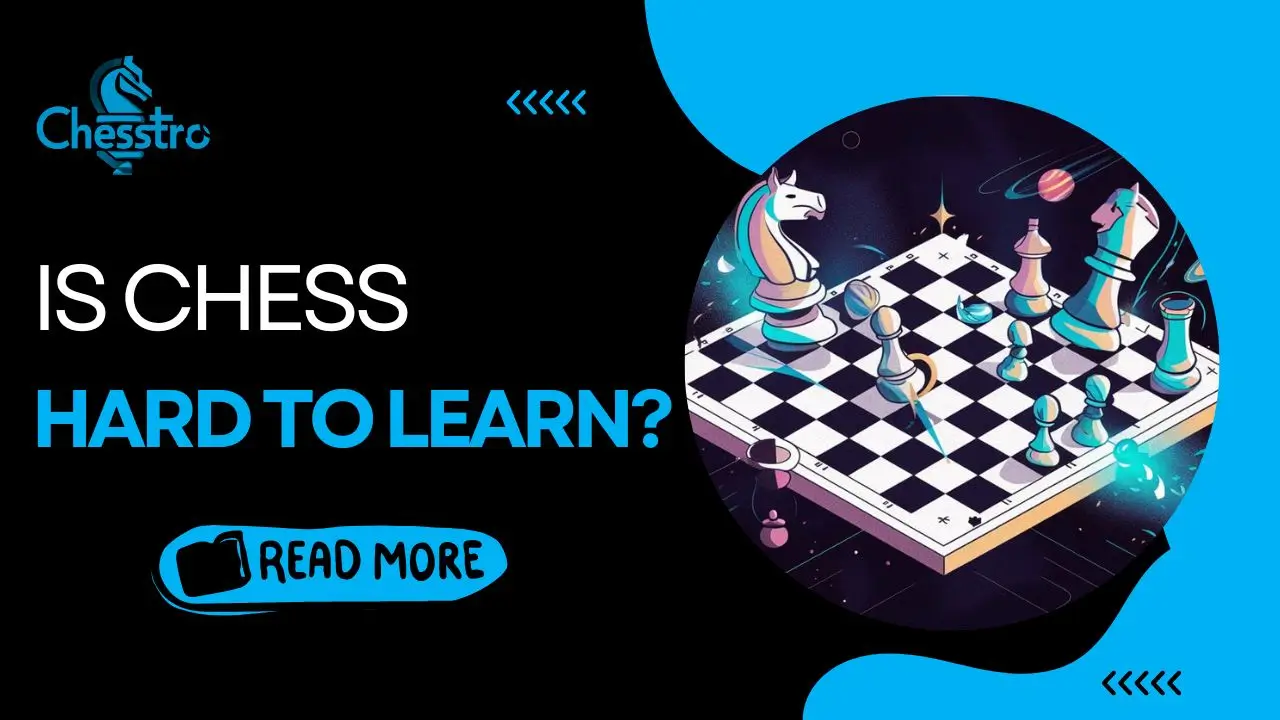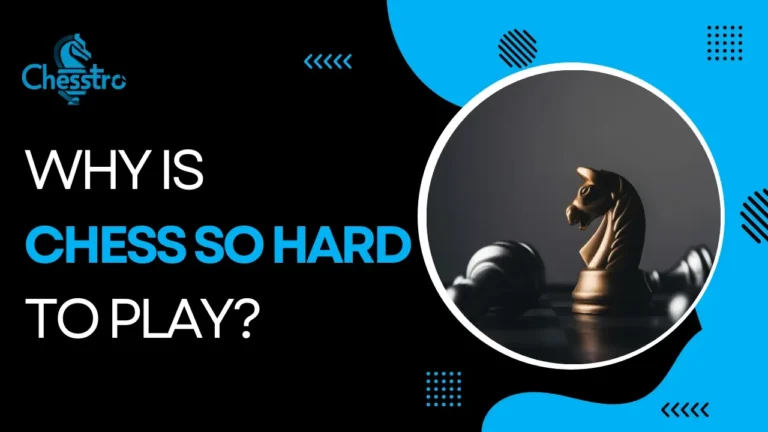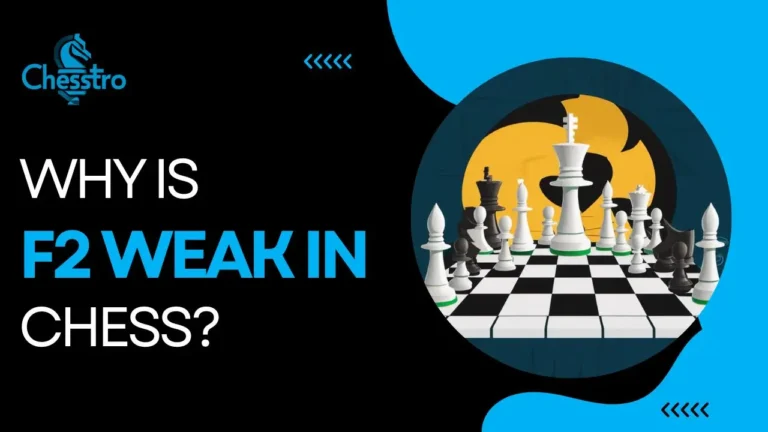Is Chess Hard To Learn? Unraveling the Truth 2024
Chess is often regarded as a complex and intellectually demanding game, leading many to wonder if it is challenging to learn. Is Chess Hard To Learn? The game of chess is easy to understand.
To play chess, you need only know the basics: how to move the pieces, how to checkmate, and a few tricks here and there. Learning from experienced players, studying different tactics and strategies, and engaging in regular practice are essential for improving chess.
| Aspect | Description |
|---|---|
| Difficulty of Learning Chess | While chess is often seen as complex, learning the basics is straightforward. Understanding piece movements, checkmating, and common tactics are fundamental steps. |
| Main Steps to Simplify Learning Chess | Learning piece movements, mastering checkmating techniques, understanding support and defense, and grasping special moves like castling and en passant are key strategies. |
| Common Difficulties for Beginners | Beginners may struggle with grasping piece movements, planning ahead, recognizing patterns, understanding opponent moves, and comprehending complex board configurations. |
| Time Required to Learn Chess | Learning chess is a gradual process that requires dedication and practice. While mastery takes years, regular practice, patience, and a willingness to learn can lead to improvement. |
You can also learn more about Does ADHD Affect Chess
Main Steps To Make Chess Easy To Learn:
Here are the main steps to make chess easy to learn:
Learn The Pieces And How They Move:
Understanding the pieces and how they move is one of the most important aspects of making chess simple to learn. Each player begins with 16 pieces, each with a distinct movement pattern. Learning these movements is critical because they serve as the game’s foundation.
For example, the king can move one square in any direction, whereas the queen can move any number of squares in any direction. The rook moves horizontally or vertically, the bishop can move diagonally, and the knight can move in an L-shaped manner.
You can also learn more about Can Pawns Move Backwards?
Pawns, on the other hand, move one square forward but can also move two squares forward on their first move. They are understanding how each piece moves aids in strategy development, assault execution, and defense against opponents.
Learn How To Checkmate:
The main aim of the game is to checkmate, as this is the move that lets you win. If you’re new to chess, you should start by learning how each piece moves. This includes understanding how pawns, knights, bishops, rooks, queens, and kings travel on the board.
After you’ve got these basic moves down, you can focus on planning how to use your pieces to go after your opponent’s king. At this point, it can be really helpful to learn common ways to checkmate.
You can also learn more about Where are the chess hustlers
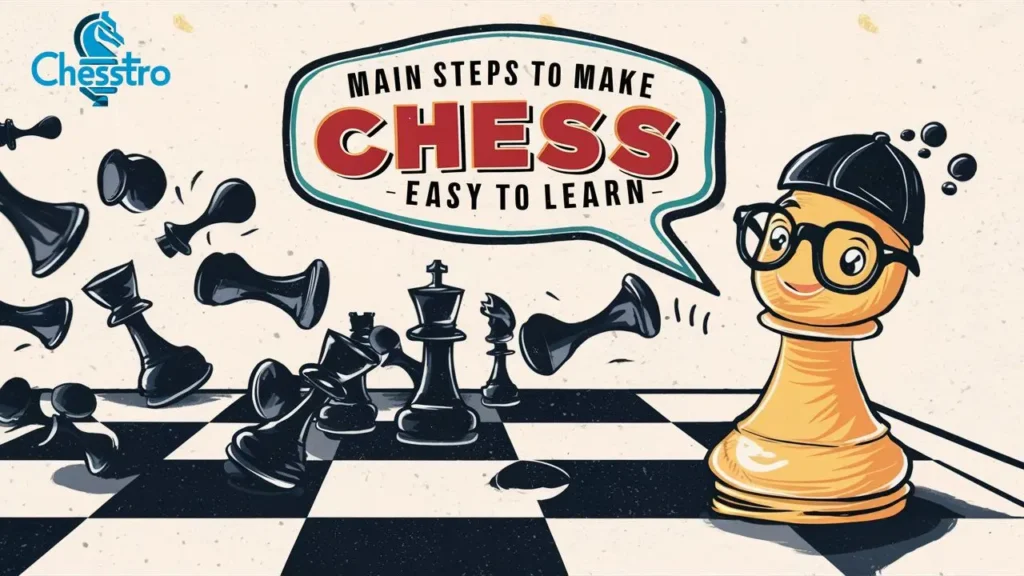
New players often learn methods like the Fool’s Mate, Scholar’s Mate, and Back Rank Mate because they show easy ways to achieve checkmate. By practicing these checkmate methods and getting better at seeing the whole board, new players can feel more sure of themselves and their ability to play and, in the end, win at chess.
Learn How To Support And Defend Pieces:
Supporting a piece entails using one of your pieces to prevent the opponent from capturing another piece. This is especially crucial when it comes to guarding your king, as leaving it susceptible might result in checkmate and the game being over.
Similarly, protecting a piece entails strengthening its position on the board in order to keep it from being captured. This can be accomplished by surrounding it with many pieces, resulting in a formidable defense that is difficult for the opponent to overcome.
You can also learn more about What is the 20-40-40 rule in Chess?
By understanding the technique of supporting and defending pieces, beginners can reduce their odds of losing precious pieces while also providing openings for assault. Practicing these techniques not only enhances one’s understanding of chess strategies but also ensures greater success in the game.
Learn About Special Moves:
In order to make chess easy to learn, it is crucial to start by understanding the special moves that can be made during the game. One of the moves to comprehend is castling. This move allows the king and rook to switch places, offering greater protection for the king and setting up the rook for a more active role in the game.
Additionally, learning about en passant is essential. This special pawn capture can only happen under certain conditions when an opponent’s pawn moves two squares forward from its starting position, providing an opportunity for an immediate countermove.
You can also learn more about Why is Blitz chess so popular?
Furthermore, understanding promotion is necessary as it allows a pawn to be converted into any other piece upon reaching the opposite end of the board, enhancing strategic possibilities.
What Are The Common Difficulties Beginners Face When Learning Chess?
Learning how to play chess can be tough for new players. There are many rules and methods that can seem hard for someone who is just starting to learn. The way each chess piece moves and interacts with each other can be confusing and take time to get the hang of. Another hard part is learning how to think ahead and plan your moves.
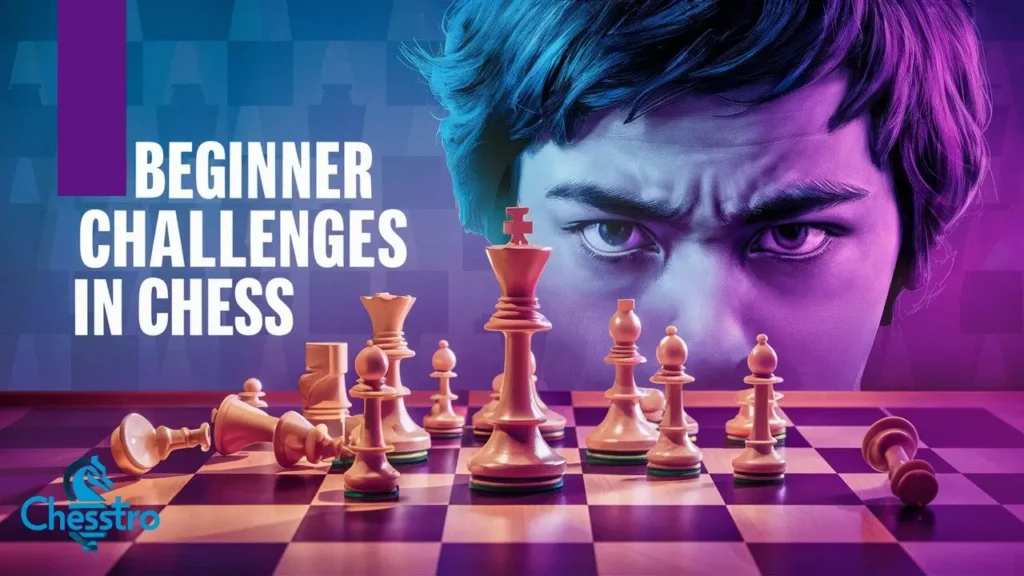
Chess players need to guess what moves their opponent will make and then decide on their moves based on that. This can be tough for new players who need to get used to thinking ahead or making plans.
You can also learn more about Do Chess Books Help?
They also often need help seeing patterns and tactics on the chessboard. They might not understand why certain pieces are placed where they are, or they might need to know when their opponent is about to make a big move.
Even though learning chess can be a fun and rewarding experience, new players often need help with understanding the rules, thinking ahead, and seeing patterns.
How Long Does It Take To Learn Chess?
Chess has been loved by people for hundreds of years, giving them a way to test their thinking skills and strategy. Even though it takes time and hard work to learn chess, what really matters is how you think and how you approach it. If you’re dedicated and practice a lot, you can get really good at chess.
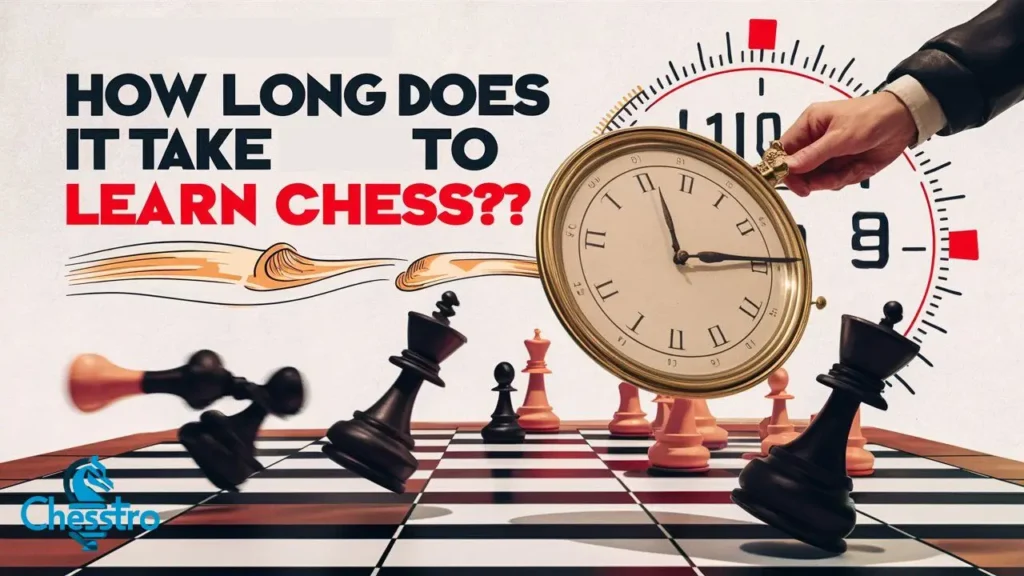
You can also learn more about Do You Have To Say Check In Chess?
You need to know about the different pieces, how they move, and what their job is in the game. You also need to understand the basic rules like checkmate and stalemate. Chess requires you to think critically, solve problems, and see patterns, and these are skills you can get better at over time.
Even though it can take years of learning and playing to become a chess master, it’s a fun and rewarding activity that helps improve your thinking skills and strategy. So, with regular practice, patience, and a readiness to learn from your mistakes, anyone can get past the challenges of chess and come out on top.
You can also learn more about How do chess hustlers work?
FAQS: Is Chess Hard To Learn?
Summary: Is Chess Hard To Learn?
In summary, while chess may appear daunting at first glance, it is definitely a game that can be learned and mastered by anyone willing to put in the time and effort. Like any new skill, it requires patience, practice, and dedication.
However, the rewards of becoming proficient in chess are immeasurable. Not only does it provide intellectual stimulation and enhance critical thinking skills, but it also fosters creativity, strategic planning, and a sense of accomplishment.
So, if you are interested in challenging yourself and expanding your mind, don’t let the initial complexities deter you from embarking on this incredible journey of mastering the game of chess. Remember, with perseverance and a willingness to learn from mistakes, you, too, can become a skilled chess player.

